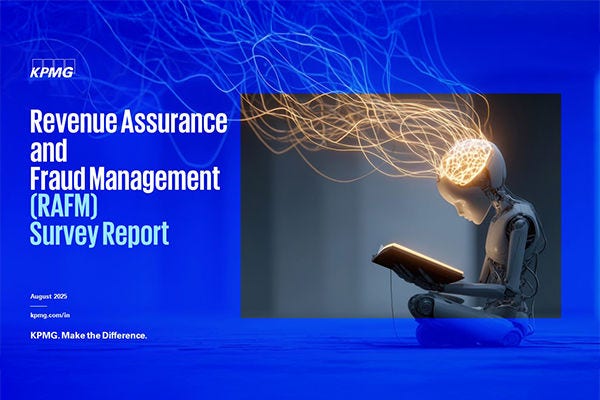KPMG in India conducted a detailed RAFM Survey to evaluate the evolving maturity of Revenue Assurance and Fraud Management (RAFM) functions within organisations, with a focus on how these traditional control-centric domains are transforming in response to digital acceleration, advanced technology adoption, and shifting business priorities. The survey was driven by the need to understand how telecom enterprises and adjacent industries are adapting their assurance mechanisms in an increasingly automated, data-rich, and risk-prone environment. Survey insights into the strategic coherence, governance maturity, and operational robustness of the RAFM function across organisations, including roadmap alignment, risk review cadence, control frameworks, and budgetary adequacy. It also highlights a significant shift in RAFM functions, with widespread adoption of advanced technologies such as Artificial Intelligence (AI), Machine Learning (ML), Robotic Process Automation (RPA), and Data Analytics.
RAFM teams are navigating operational challenges and facing barriers to adopting advanced technologies and techniques. At the same time, they are identifying promising trends and opportunities that could reshape the RAFM landscape over the next few years, driving innovation and strategic growth. Organisations are taking a balanced approach to emerging fraud threats in RAFM, with equal emphasis on reactive responses, R&D investment, trend monitoring, and industry collaboration. This indicates a strategic blend of short-term mitigation and long-term innovation.
The survey also confirms a fundamental shift in mindset from Revenue Assurance as a back-office control function to Business Assurance as a proactive, value-protecting enterprise layer. This evolution is rooted in the realisation that assurance is no longer confined to leakages or billing mismatches but extends to customer experience, partner accountability, operational governance, and margin preservation. Many organisations are now aligning assurance KPIs with strategic business objectives, making it essential for RAFM units to collaborate with product, commercial, and partner teams. This shift is also reflected in the growing attention on new assurance areas such as service activation integrity, product lifecycle validation, and revenue recovery across partner ecosystems. It is noted that the Business Assurance (BA) framework is increasingly applicable beyond the telecom sector and it serves as a unifying layer that integrates processes, risk management, and value alignment across complex digital ecosystems. Outside telecom, BA models are being adapted across industries including healthcare, hospitality, aviation, logistics, and utilities which highlights BA’s scalability and flexibility, enabling organisations to focus on value flows, reduce operational risks, uncover gaps, and strengthen both customer-facing and backend operations.






